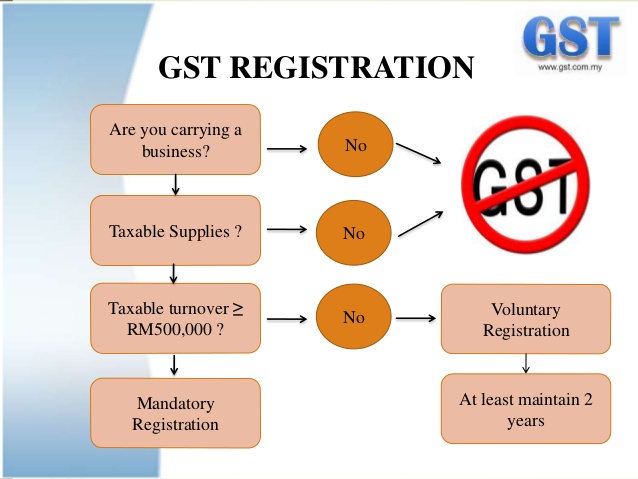Important Overview to Singapore GST Registration for New Organizations
Important Overview to Singapore GST Registration for New Organizations
Blog Article
Making Best Use Of Tax Obligation Effectiveness: Expert Tips on Navigating the GST Enrollment Puzzle for Small Companies
Navigating the intricate landscape of Goods and Provider Tax Obligation (GST) registration can be a labyrinthine task for local business aiming to optimize their tax obligation effectiveness. Comprehending the qualification standards, precise paperwork requirements, calculated timing considerations, and skilled registration procedure ideas can significantly impact a firm's monetary standing. Compliance with GST guidelines is extremely important, and adhering to best techniques can improve procedures and prevent potential mistakes. In this conversation, we will discover skilled insights and workable recommendations that can empower tiny services to browse the GST registration maze properly and optimize their tax obligation effectiveness.
Eligibility Standards
Eligibility needs for Small company GST Enrollment incorporate specific criteria that services have to meet to follow tax obligation policies. To get approved for GST registration, a service has to have a yearly turnover going beyond the threshold set by the tax authorities, which varies by country. Furthermore, services included in inter-state supply of solutions or items, or those selling products online, might be needed to sign up for GST, regardless of their turn over. It is vital for organizations to properly establish their qualification based upon these turnover thresholds to avoid penalties for non-compliance. Singapore GST Registration.

Paperwork Requirements
To effectively complete the process of GST registration, local business need to ensure they have all necessary documents in order. The required documents commonly includes proof of service enrollment or identification, address and incorporation proofs of the company proprietor, photographs, checking account details, and evidence of the major workplace. Additionally, services need to supply details of their business activities, consisting of the products or solutions supplied. It is crucial to make sure that all documents are precise, approximately day, and in the defined style to prevent delays or denials during the registration process.
Maintaining all required documentation arranged and easily easily accessible can improve the enrollment process and aid services abide with the needs effectively. Meticulous interest to detail and adherence to the paperwork standards are important for an effective GST enrollment process for little businesses.
Timing Factors To Consider
Considering the essential paperwork requirements have actually been carefully addressed, the next critical facet for small companies starting the GST registration procedure is the strategic administration of timing factors to consider. Timing plays an essential function in GST registration, affecting not just conformity but likewise financial elements of the organization. Small companies require to very carefully plan the timing of their GST enrollment to take full advantage of advantages and minimize potential dangers.

In addition, organizations need to straighten the timing of their GST enrollment with their functional readiness. view publisher site Appropriate prep work, such as updating bookkeeping systems and training staff, is important to effortlessly integrate GST requirements right into daily operations. By tactically taking care of timing factors to consider, small companies can navigate the GST enrollment procedure successfully and enhance their tax efficiency.
Enrollment Refine Tips
Effectively navigating the GST enrollment procedure requires tiny organizations to carry out strategic and proactive registration procedure ideas. One essential tip is to make certain all needed files are conveniently available prior to starting the enrollment process. This consists of company enrollment papers, evidence of address, bank declarations, and identification evidence of the company proprietors. Verifying the precision of the information given is similarly essential to stop denials or hold-ups.
In addition, understanding the thresholds and demands for GST enrollment based on the details state or territory where the company runs is essential. Some states have different turn over limits that trigger obligatory enrollment, so being educated about these thresholds can assist organizations plan in advance.
One more valuable pointer is to consider seeking expert help from accounting professionals or tax obligation consultants who specialize in GST registration. Their expertise can streamline the process, lower mistakes, and make certain conformity with all laws.
Conformity Ideal Practices
Browsing the GST registration process smoothly necessitates not only strategic registration procedure tips yet also persistent adherence to conformity best techniques to guarantee ongoing regulatory placement. Local business have to focus on conformity to stay clear of charges and preserve a good standing with tax obligation authorities. One crucial finest method is to keep thorough and precise records of all deals. This includes informative post billings, receipts, and other economic papers that may be required for tax audits or conformity checks. In addition, staying educated regarding any modifications or updates to GST regulations is crucial. Small company proprietors ought to consistently evaluate federal government standards and seek specialist guidance if needed to guarantee they are fulfilling all requirements. It is also suggested to submit GST returns in a timely manner to stay clear of late charges and penalties. By including these compliance finest practices into their procedures, local business can browse the intricacies of GST registration with confidence and performance.
Final Thought
To conclude, small companies can navigate the GST registration maze by ensuring they meet eligibility criteria, gather required documentation, consider timing implications, follow registration process pointers, and comply with compliance ideal techniques. By optimizing tax obligation effectiveness with correct GST enrollment, services can improve their monetary management and operations.
Browsing the elaborate landscape of Product and Services Tax (GST) enrollment can be a labyrinthine job for little companies intending to optimize their tax efficiency.Qualification needs for Small Service GST Registration encompass specific standards that organizations need to satisfy to comply with tax obligation policies. The needed documentation typically consists of proof of business enrollment or identity, unification and address proofs of the organization proprietor, photographs, bank account information, and proof of the major location of business. Furthermore, businesses require to offer information of their service tasks, including the items or services provided.Effectively browsing the GST registration procedure requires little organizations to implement aggressive and critical enrollment procedure ideas.
Report this page